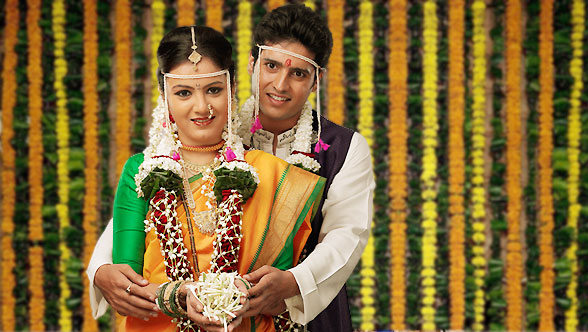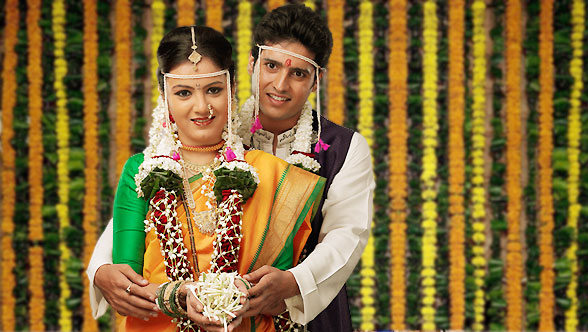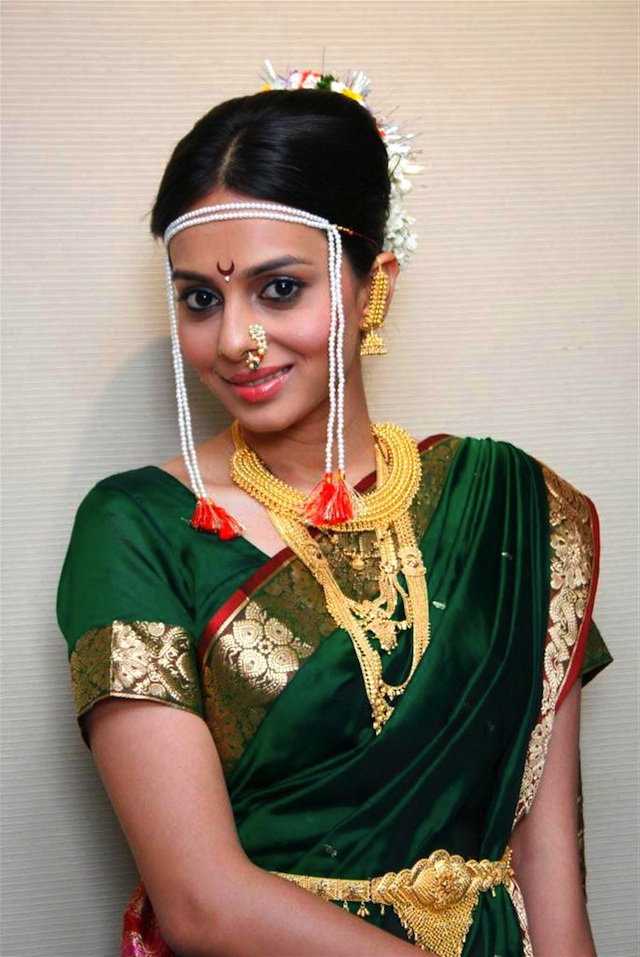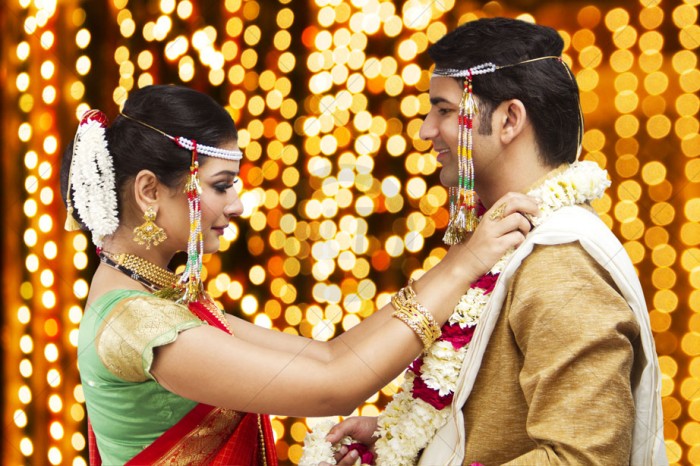
Weddings in Maharashtra
Weddings are joyous occasions and when it comes to India then you’ll find that every community has different traditions and wedding customs. The statement unity in diversity stands true for India in every possible way. Weddings in the state of Maharashtra are simple in nature, yet they are very vibrant and joyful. Weddings in India have always been a huge affair and the same is true for Marathi weddings as well. But the thing to note here is that the Marathi folks celebrate this huge affair with utmost simplicity. The whole wedding ceremony in the Marathi community is quite detailed and comprises of many interesting rituals.
Background
Like every wedding ceremony held in India, Marathi wedding too is very meaningful and lively in nature and joy is one guest that is always present on this occasion. The Marathi wedding is a good blend of Dravidian and Aryan cultures. The wedding process starts usually with matching the horoscopes of groom and the bride, and if they match then a date for the marriage is set by both the families. It has to be noted that a Marathi wedding always takes place during the day time as the Marathi folks regard the day time as the most fortunate time.
The rituals for the wedding begin from days before the D-day and the engagement or Sakhar Puda as it is called in Marathi is the first pre-wedding ritual. The rituals that are done on the wedding day begin with a puja for Lord Ganesh so that everything goes as per plan and with the blessings of the deity. The traditions and rituals in a Marathi wedding have been the same since a long time now and people follow them as it is.
Styles and Attires
The wedding day is special for both bride and the groom and they dress up their best on this day. Let us talk about the attire in detail so that you can get a fair idea. The Marathi bride looks charming and graceful in a nine yard saree, known as the Paithani sari, which is vibrant in color and designs. The bride in Marathi weddings always dons traditional attire and the sari is draped in a typical Maharashtrian manner. The bride’s sari is generally green in color and is made from silk and usually it is either a Kanjivaram silk sari with a broad border in gold, or even a Benarasi silk sari. The hair of the bride is set into a bun and decorated with flowers. The Marathi people have a belief that a fully dressed bride is an avatar of goddess Parvati.
The groom too dresses himself in traditional attire. He dons a dhoti kurta which is usually white in color, but some of the grooms also opt for some other lighter shades. He also has a stole around his neck which has a thin border in the color gold much like the border in the sari of the bride. The head of the groom is covered with a Nehru cap.
Innovations
As far as the Marathi wedding is concerned then there are no noteworthy innovations. The bride and groom still don the traditional attire and follow the rituals as they did years back.
Global wearability
Indian weddings have an appeal that is spread across the globe. There are many Maharashtrians settled abroad and they still follow the customs and rituals of a Marathi wedding in foreign lands.
Accessories
Wedding attire is incomplete without jewelry and both bride and groom complete their dress with appropriate jewelry. The jewelry for a Marathi bride is highly inspired by the jewels hailing from Maratha Peshwa dynasty and they are identified by their distinct features. Most of the jewelry pieces are manufactured in Kolhapur which is a city located in Maharashtra. The ornaments that the Marathi bride generally wears with her outfit are moongachi maal, lakshmi haar, ghalsari, rudraksha maal and other than that they wear a nath which is called a karwari nath. They complete their look with bangles and an ambada which is primarily a bun pin.
The groom in a Marathi wedding also wears some jewelry to add the traditional touch to his wedding outfit. He accessorizes with a ring and pearl beads around his neck.
Maintenance
The wedding outfit and jewelry hold a special significance for the bride and the groom and that is why they cherish it for the rest of their lives. The saris are made from silk and hence they need extra care and attention and so does the jewelry.
References
Categories: Wedding Types, Weddings & Festivals



